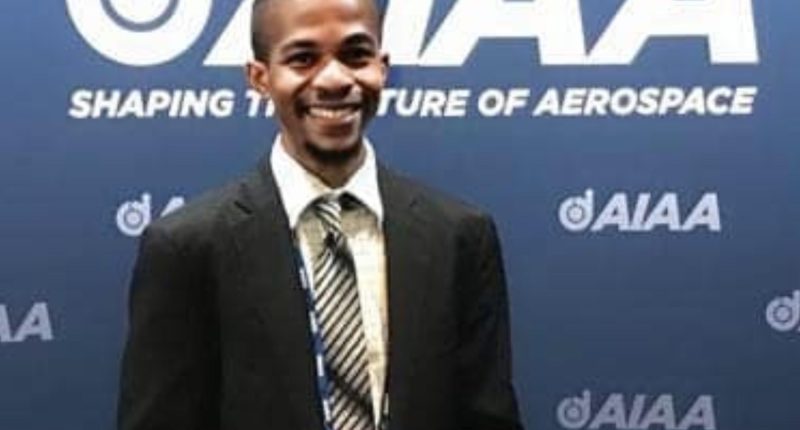Opinions expressed by Entrepreneur contributors are their own.
You’re reading Entrepreneur Middle East, an international franchise of Entrepreneur Media.
This article is part of an ongoing series covering startups that have been a part of the Mohammed Bin Rashid Innovation Fund (MBRIF) accelerator program.
The UAE-based branch of spacetech startup SpaceTIS was launched in 2022, but its story began in 2017 when the very first office was launched in the USA in 2017. Since then, it has also set up bases in Luxembourg, Nigeria, and Saudi Arabia. And while the startup’s work in each of these locations has been primarily focused on designing and manufacturing affordable space and terrestrial innovative technologies, SpaceTIS-UAE has a very specific goal: developing an innovative indigenous unmanned aerial vehicle (UAV) or drone technology.
“The key UAV challenge in the industry that inspired this product development is the lack of versatile and high-endurance platforms to meet the old as well as emerging needs of many drone clients,” explains Hadarou Sare, founder and CEO of SpaceTIS-UAE. “In fact, SpaceTIS-UAE has identified two main problems with the existing UAVs in the market: lack of versatility, and lack of high-endurance. SpaceTIS-UAE therefore proposes to develop an innovative UAV that meets the versatility issues and the lack of endurance issues. We do this by implementing the following traits in our innovative UAV technology: modular and highly adaptable swappable components to meet the versatility requirements, and an inflight battery charging system and fuel optimization algorithms to prolong flight time and expand the mission envelope in order to meet the endurance requirements.”
Now, before attempting to understand how SpaceTIS-UAE’s technology operates, it is perhaps necessary to understand the implications of the current technology’s flaws. For starters, UAVs have been often constrained by their battery life, which, in turn, affects their range and endurance. This can be a major obstacle for applications that require long-duration flights or long-distance operations. Another issue faced by UAVs is maintaining reliable communication between the UAV and the ground control station- signal interferences and loss of connection can render the entire operation useless. And it is precisely these challenges -and others- that SpaceTIS-UAE is hoping to negate with its own UAV technology.
Related: The Drone Industry Is Taking Off: Here’s How You Can Join The Ride

SpaceTIS develops a range of innovative components for space vehicles and for space and terrestrial applications. In the UAE, the startup is working towards disrupting the local UAV market. Source: SpaceTIS
“In terms of technology development, we’ve completed the design and testing of each component of the technology, and we have also completed manufacturing a prototype of the technology, with patents already filed,” Sare says. “We believe technology such as ours does not exist in the current UAE market. Our products are also more affordable than existing UAVs on the market. And so, the product is a milestone development in the UAV/ drone industry, as the first drone with above 75% indigenous content in manpower. Moreover, our UAV’s airframe is made of light aluminum, its wingspan is 3.5 meters, it has an endurance time of three hours minimum, and the communication is long-range (more than 50 km), with the control system being a mobile ground station.”
SpaceTIS-UAE’s main source of revenue lies, therefore, in the sales of two primary UAV technologies: a multi-rotor UAV, and a fixed-wing UAV. “Our revenue model also involves selling components we develop as part of our innovative UAV, namely, hybrid propulsion, inflight battery charging system, fuel optimization algorithm, and highly adaptable and swappable UAV components,” Sare says. “And finally, we also offer auto starting systems, training and human capacity development, and onboard power generation systems. In the long term, SpaceTIS will be developing multiple other space technologies and components in the UAE.” Note here that SpaceTIS- UAE is being supported in this regard by the UAE Space Agency, the premier entity tasked with shaping the UAE’s space sector and expeditions.
Now, as SpaceTIS-UAE works towards creating create impact within the UAE market, it does so with the experience of having worked and collaborated with renowned global entities in the spacetech space. Indeed, over the years, it has partnered with the National Aeronautics and Space Administration (NASA), Florida Space Institute, the US Department of Defense, the King AbdulAziz City for Science and Technology, the Nigerian Space Agency, and the South African Space Agency, among others. And now, with the support of the MBRIF Innovation Accelerator Program, Sare and his team hope that their goals can be realized effectively. “We chose the MBRIF program due to its alignment with our vision for pioneering UAV technology,” Sare says. “The program offers invaluable support and opportunities for growth, making it an ideal fit for SpaceTIS-UAE’s aspirations!”








